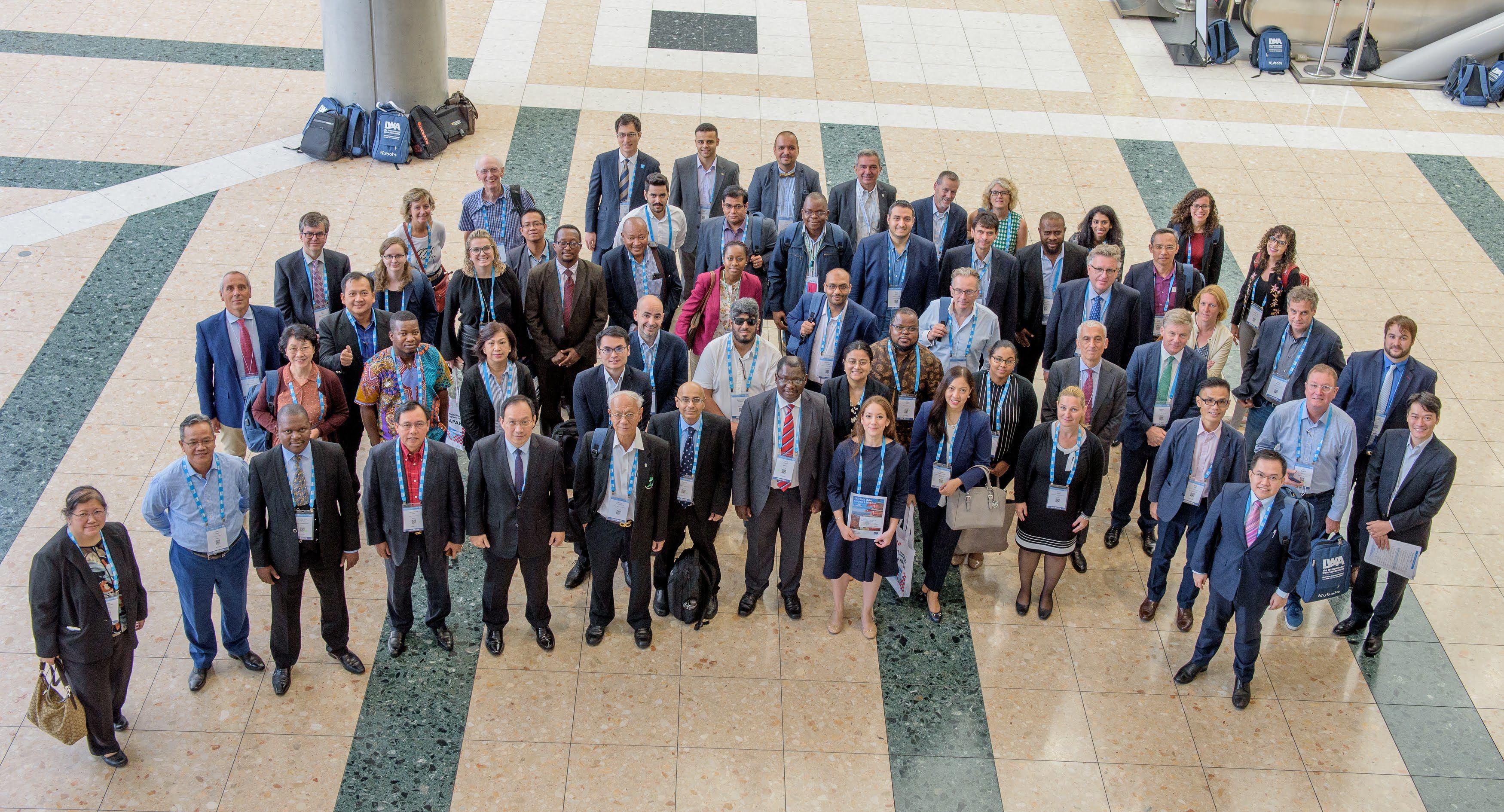Water Policy and Regulation
The Water Policy and Regulation Agenda spans all IWA agendas, connecting regulatory authorities and practitioners to inform and implement an enabling environment that makes the water-wise vision possible. The Lisbon Charter and the Call to Action on Strengthening Water and Sanitation Regulatory Systems guide our work.

Mission
To empower water and sanitation regulators around the world by facilitating peer-to-peer learning, collaboration, and innovation; advancing strong, inclusive, and adaptive regulatory systems that promote equitable, safe, and sustainable service delivery for all.
Vision
A world where robust and effective water and sanitation regulation enables universal access to safe, affordable, and resilient water and sanitation services, driving progress toward the Sustainable Development Goals and a water-wise future.
Discover Current Activities
The International Water Regulators Forum
IWA hosts the International Water Regulators Forum (IWRF), a unique platform that brings together regulatory authorities and officials responsible for oversight in WASH regulation.
Call to Action on Strengthening Water and Sanitation Regulatory Systems
The Call to Action on Strengthening Water and Sanitation Regulatory Systems is a global initiative co-led by the World Health Organization and IWA, with the support of over 40 partners.
Blogs
Dive into thought-provoking articles exploring trends, challenges, and success stories in water and sanitation regulation.
Publications
Discover thought-provoking publications exploring trends, challenges, and success stories in water and sanitation regulation.
Webinars
Explore live and on-demand webinars featuring leading voices and latest developments in water and sanitation regulation.
Connecting with the International Regulators Community
If you wish to contribute to and engage with this work, join us on Connect Plus and fill out the form for the IWA Regulators Community List.
Connect with SGs related to Water Policy and Regulation
Past Activities
The Lisbon Charter
An international framework of good practice for public policy and regulation in drinking water supply, sanitation and wastewater management services. It contains clear references to the rights and responsibilities of the various stakeholders and users.
Building nature based, resilient water systems: Catalyzing the Role of Water Regulators
The IWA and The Nature Conservancy (TNC) collaborated with global regulators and experts to identify how regulatory frameworks can enable and scale nature-based solutionsfor resilient water management, culminating in a technical brief that informs policy, fosters investment, and supports sustainable water security.
Human Rights to Water and Sanitation
IWA developed the Manual of the Human Rights to Safe Drinking Water and Sanitation for Practitioners, a practical guide that outlines how human rights principles can be integrated into daily operations, helping practitioners make informed decisions and actively contribute to national policy dialogues.
Regulating for Citywide Inclusive Sanitation
The initiative aimed to identify the needs, opportunities and tools for regulators’ contribution to achieving citywide inclusive sanitation as part of the path towards achieving the Sustainable Development Goals.
Public Participation in the Regulation of Urban Water Services
The project explored how public participation can strengthen decision-making processes in urban water, sanitation, and wastewater service provision—particularly in the setting of tariffs and pricing.

Need help?
Contact our Membership Engagement Senior Officer
For enquiries about the Regulators community, please contact Isabela Espindola
Subscribe to our newsletters
IWA and sector updates
to your inbox
Follow us